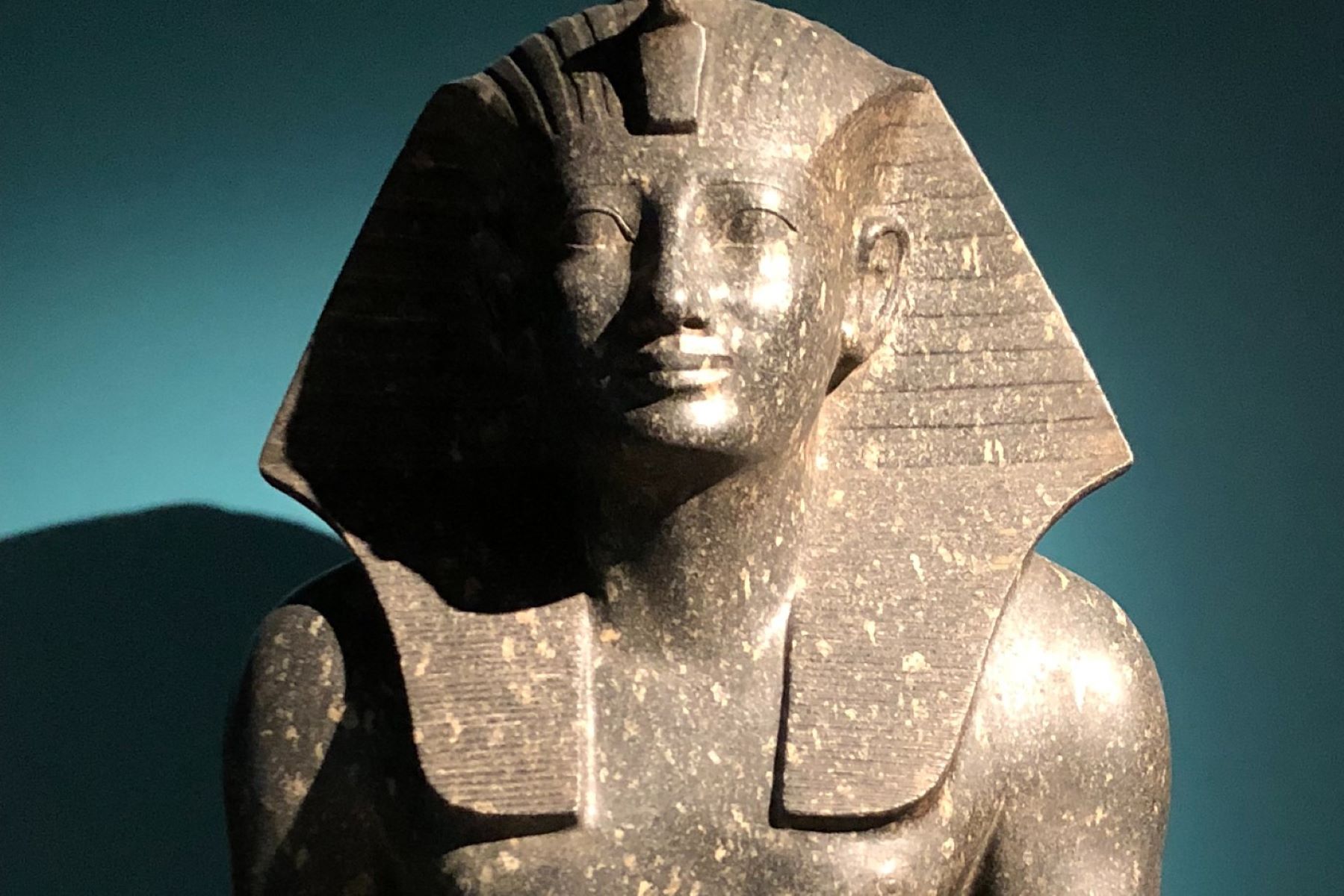
Thutmose I, the third pharaoh of Egypt's 18th Dynasty, is celebrated for his military campaigns that expanded Egypt's reach into the Levant and Syria. His reign, from around 1506 to 1493 BC, saw numerous expeditions that fortified Egypt's borders and established its dominance. Thutmose I's campaigns began early, with his first recorded military action in his second year as pharaoh. He ventured further north than any Egyptian ruler before him, even crossing the Euphrates River. These campaigns not only brought wealth and tribute to Egypt but also increased its geographical knowledge and influence. Let's delve into 20 key facts about these remarkable campaigns.
Early Campaigns of Thutmose I
Thutmose I, the third pharaoh of Egypt's 18th Dynasty, wasted no time in asserting his military prowess. His reign, from around 1506 to 1493 BC, saw numerous campaigns that expanded Egypt's influence.
- Thutmose I's military campaigns began early in his reign. The first recorded campaign was in his second regnal year, indicating a swift and decisive start to his military endeavors.
Syrian Campaigns and the Euphrates River
Thutmose I's campaigns in Syria were particularly notable. These expeditions aimed to secure Egypt's northern borders and extend its reach.
-
Thutmose I's Syrian campaigns were extensive and aimed at securing Egypt's northern borders. He fought a significant battle in Syria, which marked the farthest north any Egyptian ruler had ever campaigned.
-
During his Syrian campaign, Thutmose I crossed the Euphrates River, a major milestone in Egyptian military history. Although the stele commemorating this event has not been found in modern times, it is believed to have been set up when he crossed the river.
-
Thutmose I secured the allegiance of several Syrian princes during his campaigns. However, after his departure, these princes discontinued their tribute and began fortifying against future Egyptian incursions.
-
Thutmose I celebrated his victories with an elephant hunt in the area of Niy, near Apamea in Syria. This hunt was a testament to his military prowess and the exotic nature of the lands he conquered.
-
Thutmose I was fascinated by the Euphrates River, which he described as "inverted water" because it flowed from north to south, contrary to the Nile River's flow from south to north. This description highlights his curiosity and the novelty of encountering such a river.
Encounters with Retenu, Naharin, and Mitanni
Thutmose I's campaigns brought him into contact with various regions and kingdoms, expanding Egypt's geographical and political knowledge.
-
Textual sources from Thutmose I's time include references to Retenu, Naharin, and the 'land of Mitanni'. The last reference is believed to be the first historical mention of the kingdom of Mitanni.
-
Many Levantine sites were destroyed in the middle of the 16th century BC, often attributed to the military campaigns of Thutmose I or his predecessor Amenhotep I. For example, the fiery destruction of Stratum XVIII at Gezer has been assigned to this period.
Military Objectives and Strategies
Thutmose I's campaigns were not just about conquest; they had strategic objectives aimed at securing Egypt's borders and resources.
-
It appears that the Egyptians' aim at this stage was not to control the area permanently. They established no permanent presence in the region, a strategy that would change later during the 18th dynasty.
-
The initial campaigns may have aimed at defeating the power of the Hyksos, who were formerly strong in the area. However, the ultimate goal was to secure Egypt's borders and expand its influence.
-
Thutmose I's campaigns were not short-lived. He engaged in multiple campaigns, each lasting several years, which indicates a sustained effort to secure and expand Egypt's territories.
Tombos Stele and Geographical Knowledge
The Tombos stele and other records provide valuable insights into Thutmose I's campaigns and their impact on Egypt's geographical knowledge.
-
The Tombos stele provides valuable information about Thutmose I's campaigns. It mentions his military achievements and the tribute he received from the Syrian princes.
-
Thutmose I's campaigns expanded Egypt's geographical knowledge. He encountered new rivers, landscapes, and cultures, which were documented in Egyptian texts and steles.
Economic and Human Impact
The spoils and human capital from Thutmose I's campaigns had a significant impact on Egypt's economy and society.
-
The spoils from Thutmose I’s military campaigns, including plunder, taxes, and tribute, vastly enriched Egypt’s treasury. This economic boost contributed to Egypt's status as a powerful empire.
-
Thutmose I also secured human capital from his captured territories. This included skilled laborers, artisans, and possibly even military personnel who could be integrated into the Egyptian army.
Historical Significance and Legacy
Thutmose I's campaigns left a lasting legacy, influencing future Egyptian rulers and shaping the course of Egyptian history.
-
Thutmose I's campaigns marked a significant turning point in Egyptian history. They established Egypt as a major power in the region and set the stage for future military conquests under his successors, including his grandson Thutmose III.
-
While many archaeological sites from Thutmose I’s time have been destroyed or damaged, some remnants remain. For example, the destruction debris at Gezer contains pottery and scarabs that date back to the time of Amenhotep I and Thutmose I.
-
Thutmose I was originally buried in KV20, a tomb he shared with his daughter Hatshepsut. This double burial highlights the close familial ties and the importance of royal lineage in ancient Egyptian society.
-
Thutmose I’s military tactics were likely influenced by his education and training. As a prince, he would have received extensive education in military strategies, which he applied effectively during his campaigns.
-
Thutmose I’s campaigns left a lasting legacy in Egyptian history. They solidified Egypt’s position as a major power in the ancient Near East and paved the way for future pharaohs to continue expanding Egypt’s empire.
Thutmose I's Military Legacy
Thutmose I's campaigns were game-changers for ancient Egypt. His early military actions set a strong precedent, expanding Egypt's reach into Syria and beyond. Crossing the Euphrates River was a milestone, showcasing his ambition and strategic prowess. The allegiance of Syrian princes, though temporary, highlighted his influence. His fascination with the Euphrates and the elephant hunt near Apamea added a personal touch to his conquests.
The destruction of Levantine sites and the limited permanent presence indicate a focus on immediate military objectives rather than long-term control. The economic and human capital gained from these campaigns enriched Egypt, boosting its status as a powerful empire. Thutmose I's legacy paved the way for future pharaohs, like his grandson Thutmose III, to continue expanding Egypt's empire. His campaigns left an indelible mark on Egyptian history, solidifying its position as a dominant force in the ancient Near East.
Was this page helpful?
Our commitment to delivering trustworthy and engaging content is at the heart of what we do. Each fact on our site is contributed by real users like you, bringing a wealth of diverse insights and information. To ensure the highest standards of accuracy and reliability, our dedicated editors meticulously review each submission. This process guarantees that the facts we share are not only fascinating but also credible. Trust in our commitment to quality and authenticity as you explore and learn with us.


